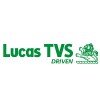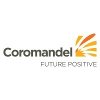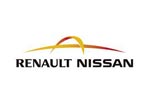Engineering Student
40+ Engineering Student Interview Questions and Answers

Asked in CDM Smith

Q. What are the main unit processes involved in water treatment?
Main unit processes in water treatment include coagulation, flocculation, sedimentation, filtration, and disinfection.
Coagulation: Chemicals are added to water to destabilize particles and allow them to clump together.
Flocculation: Gentle mixing to encourage the particles to form larger flocs.
Sedimentation: Flocs settle to the bottom of a tank due to gravity.
Filtration: Water passes through filters to remove remaining particles.
Disinfection: Chemicals like chlorine or UV ligh...read more

Asked in IIT Bombay

Q. What is the strain in the x-direction after drawing a 3D stress block?
The strain in x direction cannot be determined without additional information.
The 3D stress block only provides information about the stress components in the x, y, and z directions.
To determine the strain in a specific direction, additional information such as the material's elastic modulus and Poisson's ratio is needed.
The strain can be calculated using the formula: strain = stress / (elastic modulus * (1 + Poisson's ratio))
Engineering Student Interview Questions and Answers for Freshers

Asked in IIT Bombay

Q. What is the throat thickness of steel members as per IS Code?
Throat thickness of steel members as per IS Code varies based on the size of the member.
Throat thickness is the minimum thickness of the weld at the root of the joint.
As per IS 800:2007, the throat thickness of fillet welds should be at least 0.7 times the size of the smaller member being joined.
For example, if the size of the smaller member is 10 mm, the throat thickness of the fillet weld should be at least 7 mm.
For butt welds, the throat thickness should be equal to the th...read more
Asked in GoKloud Software Solutions

Q. How would you design a basic library/book management system? What tables and relationships would you use in the database?
A library management system organizes books, members, and transactions for efficient tracking and management.
Tables: Books, Members, Transactions, Authors, Categories.
Books table includes fields: BookID, Title, AuthorID, CategoryID, ISBN, Status.
Members table includes fields: MemberID, Name, Email, Phone, MembershipDate.
Transactions table tracks borrowing: TransactionID, BookID, MemberID, BorrowDate, ReturnDate.
Authors table includes fields: AuthorID, Name, Biography.
Categori...read more

Asked in IIT Bombay

Q. What is the static indeterminacy of this frame?
Static indeterminacy measures the number of extra constraints in a structure beyond what is needed for stability.
Static indeterminacy (S) = number of reactions (R) + number of members (M) - number of joints (J) - 3.
Example: A simple beam with 2 supports and 1 load is statically determinate.
If a frame has more supports than necessary, it becomes statically indeterminate.
For a frame with 3 supports and 4 members, calculate S to determine indeterminacy.
Asked in COMFORT DESIGN

Q. What is the concept of entropy in thermodynamics and information theory?
Entropy measures disorder in thermodynamics and uncertainty in information theory, reflecting system randomness and information content.
Thermodynamic Entropy: In thermodynamics, entropy quantifies the amount of disorder or randomness in a system, such as the dispersion of energy.
Second Law of Thermodynamics: This law states that the total entropy of an isolated system can never decrease over time, indicating natural processes tend toward disorder.
Example in Thermodynamics: Me...read more

Asked in Chandigarh University

Q. What is the difference between let, var, and const in JavaScript?
let, var, and const are used for variable declaration in JavaScript, differing in scope, hoisting, and mutability.
var: Function-scoped or globally scoped; can be redeclared and updated.
Example: var x = 10; var x = 20; // x is now 20
let: Block-scoped; cannot be redeclared but can be updated.
Example: let y = 10; y = 20; // y is now 20; let y = 30; // Error
const: Block-scoped; cannot be redeclared or updated; must be initialized.
Example: const z = 10; // z = 20; // Error
Asked in City of Ottawa

Q. If given a grading plan, what would you look for?
A grading plan typically includes information on grading criteria, weightage of each criteria, and overall grading scale.
Grading criteria such as exams, assignments, participation, etc.
Weightage of each criteria in determining final grade
Overall grading scale (e.g. A, B, C, D, F)
Possibly a breakdown of how grades are calculated (e.g. total points, percentage)
Share interview questions and help millions of jobseekers 🌟


Asked in CDM Smith

Q. Name some advanced water treatment processes.
Some advanced water treatment processes include reverse osmosis, UV disinfection, and advanced oxidation.
Reverse osmosis: uses a semi-permeable membrane to remove ions, molecules, and larger particles from water.
UV disinfection: uses ultraviolet light to kill bacteria, viruses, and other microorganisms in water.
Advanced oxidation: uses powerful oxidants like ozone or hydrogen peroxide to break down organic and inorganic contaminants in water.

Asked in Chandigarh University

Q. What is the concept of hoisting in JavaScript programming?
Hoisting in JavaScript is the behavior of moving variable and function declarations to the top of their containing scope during compilation.
Variables declared with 'var' are hoisted, but their initialization remains in place. Example: console.log(x); var x = 5; // undefined
Function declarations are fully hoisted, allowing them to be called before their definition. Example: greet(); function greet() { console.log('Hello'); }
Variables declared with 'let' and 'const' are hoisted...read more

Asked in Kansai Nerolac Paints

Q. What is over-voltage protection for different equipment?
OP protection refers to overcurrent protection for different equipment to prevent damage or malfunction.
OP protection is essential to prevent damage from overcurrents in electrical equipment.
Different equipment may require different types of OP protection, such as fuses, circuit breakers, or surge protectors.
OP protection devices are designed to trip or disconnect the circuit when an overcurrent is detected.
Examples of OP protection include thermal overload relays for motors,...read more

Asked in MyWays

Q. Develop a machine learning model to classify handwritten digits in a given dataset.
Develop a machine learning model to classify handwritten digits in a given dataset.
Preprocess the dataset by resizing images, normalizing pixel values, and splitting into training and testing sets.
Choose a suitable classification algorithm such as Support Vector Machine (SVM) or Convolutional Neural Network (CNN).
Train the model on the training set and evaluate its performance using the testing set.
Tune hyperparameters to improve model accuracy and generalization.
Use techniqu...read more

Asked in Tata Motors

Q. What is automobile processing?
Automobile processing involves the design, manufacturing, and assembly of vehicles, focusing on efficiency and safety.
Involves various stages: design, prototyping, manufacturing, and assembly.
Utilizes CAD software for designing vehicle components.
Incorporates robotics in assembly lines for precision and speed.
Focuses on safety standards, such as crash testing and emissions regulations.
Examples include the production of electric vehicles like Tesla.
Asked in Geetha

Q. What is your answer regarding relocation?
I am open to relocation for the right opportunity.
I am willing to move for a job that aligns with my career goals.
I am excited about the prospect of exploring a new city or region.
I am flexible and adaptable to new environments.
I am willing to consider relocation assistance or incentives.
I am open to discussing relocation during the interview process.

Asked in Hindustan Aeronautics

Q. What is an automobile body?
The automobile body is the outer shell of a vehicle that encloses the mechanical components and provides protection to passengers.
The automobile body is typically made of metal, plastic, or composite materials.
It includes components such as doors, windows, roof, hood, and trunk.
The body design can vary based on the type of vehicle, such as sedan, SUV, truck, or sports car.
The body plays a crucial role in providing structural integrity and safety to the vehicle and its occupan...read more

Asked in Tata Motors

Q. What are CAD and CAM?
CAD (Computer-Aided Design) and CAM (Computer-Aided Manufacturing) are technologies used for designing and manufacturing products.
CAD involves creating detailed 2D or 3D models of products using software like AutoCAD or SolidWorks.
CAM uses these models to automate manufacturing processes, such as CNC machining.
Examples of CAD applications include architectural designs, mechanical parts, and electronic circuit layouts.
CAM examples include programming CNC machines to cut, mill,...read more

Asked in Tata Motors

Q. What are gauge and process?
Gauge refers to a measurement tool, while process denotes a series of actions or steps taken to achieve a specific outcome.
Gauge can refer to various measurement tools, such as pressure gauges or thickness gauges.
In engineering, processes include design, manufacturing, and quality control.
For example, a pressure gauge measures the pressure of gases or liquids in a system.
A process might involve steps like planning, execution, and evaluation in project management.

Asked in Kansai Nerolac Paints

Q. Transmitter and application of transmitters
Transmitters are devices that generate and send out signals, used in various applications such as communication, remote control, and monitoring.
Transmitters convert electrical signals into electromagnetic waves for communication purposes.
They are used in radio and television broadcasting, wireless communication, and remote control systems.
Transmitters can also be used in monitoring systems for measuring parameters like temperature, pressure, and flow.
Examples include radio tr...read more
Asked in Pravi Automation and Controls

Q. What is a PLC and how does it work?
PLC stands for Programmable Logic Controller, it is a digital computer used for automation of electromechanical processes.
PLC is used to control machinery in industries by programming it to perform specific tasks.
It consists of input and output modules, a central processing unit, and a programming device.
PLCs are commonly used in manufacturing plants, water treatment facilities, and power generation systems.
They can be programmed using ladder logic, function block diagrams, o...read more

Asked in Bandhan Bank

Q. What is your greatest achievement?
I successfully led a team project that developed a sustainable energy solution, showcasing my leadership and technical skills.
Led a team of 5 in a project to design a solar-powered water purification system.
Presented our findings at a national engineering conference, receiving positive feedback.
Implemented a project management tool that improved our workflow efficiency by 30%.
Conducted extensive research on renewable energy sources, contributing to a published paper.

Asked in Lucas-TVS

Q. What is voltage and EMF?
Voltage is the potential difference between two points in a circuit, while emf is the electromotive force that drives current in a circuit.
Voltage is measured in volts (V)
Emf is the energy per unit charge supplied by a source, measured in volts (V)
Voltage is the difference in electric potential between two points in a circuit
Emf is the voltage generated by a source such as a battery or generator
Voltage is necessary for current to flow in a circuit

Q. What is the steel bar
A steel bar is a long, solid metal rod commonly used in construction and engineering projects.
Steel bars are typically made from carbon steel or stainless steel.
They are used in reinforced concrete structures to provide strength and support.
Steel bars come in various sizes and shapes, such as round, square, or flat.
They are often used in bridges, buildings, and other infrastructure projects.
Steel bars can also be used in manufacturing processes for machinery and equipment.

Q. What is verbal reasoning?
Verbal reasoning is the ability to understand and logically evaluate written information.
Verbal reasoning involves comprehending and analyzing written passages
It requires critical thinking skills to draw conclusions and make inferences
Verbal reasoning is often tested in exams like GRE, SAT, and LSAT

Asked in Tata Motors

Q. What is a hybrid?
A hybrid refers to a combination of two different elements, often resulting in enhanced characteristics or functionalities.
In automotive, a hybrid vehicle combines an internal combustion engine with an electric motor for improved fuel efficiency.
In biology, hybrid organisms result from the crossbreeding of two different species, like a mule (horse and donkey).
In technology, hybrid cloud solutions integrate both public and private cloud services for flexibility and scalability...read more

Asked in Movate

Q. Why is TCP needed in a network?
TCP is needed in networks for reliable communication and error detection.
TCP ensures reliable delivery of data by establishing a connection between sender and receiver
It provides error detection and correction through sequence numbers and acknowledgements
TCP also handles flow control to prevent overwhelming the receiver with data
Examples of TCP-based applications include web browsing, email, and file transfer

Asked in Coromandel International

Q. What is enthalpy?
Enthalpy is a thermodynamic property that represents the total heat content of a system, useful in energy transfer calculations.
Definition: Enthalpy (H) is defined as the sum of the internal energy (U) of a system plus the product of its pressure (P) and volume (V): H = U + PV.
Units: Enthalpy is measured in joules (J) or kilojoules (kJ), commonly used in chemistry and engineering to quantify heat changes.
Applications: Enthalpy changes are crucial in chemical reactions, phase ...read more

Asked in TCS

Q. What is polymorphism?
Polymorphism is the ability of a single function or method to operate on different types of data.
Polymorphism allows objects of different classes to be treated as objects of a common superclass.
There are two types of polymorphism: compile-time (method overloading) and runtime (method overriding).
Example: Inheritance in object-oriented programming languages like Java allows for polymorphism.
Example: Function overloading in C++ is a form of compile-time polymorphism.

Asked in MagicBricks

Q. What is your name?
My name is John Smith.
Full name is John Smith
Common name in English-speaking countries
Easy to remember and pronounce

Asked in Hindustan Aeronautics

Q. What are the different types of machine elements?
Machine elements are components or parts of a machine that perform specific functions.
Fasteners (bolts, screws, nuts)
Bearings (ball bearings, roller bearings)
Gears (spur gears, helical gears)
Shafts (drive shafts, crankshafts)
Springs (compression springs, tension springs)
Couplings (flexible couplings, rigid couplings)

Asked in Hindustan Aeronautics

Q. What is a jet engine?
A jet engine is a type of propulsion system that generates thrust by expelling hot gases at high speeds.
Uses the principle of Newton's third law of motion
Consists of components like compressor, combustion chamber, turbine, and nozzle
Examples include turbojet, turbofan, and turboprop engines
Interview Questions of Similar Designations
Interview Experiences of Popular Companies








Reviews
Interviews
Salaries
Users
















